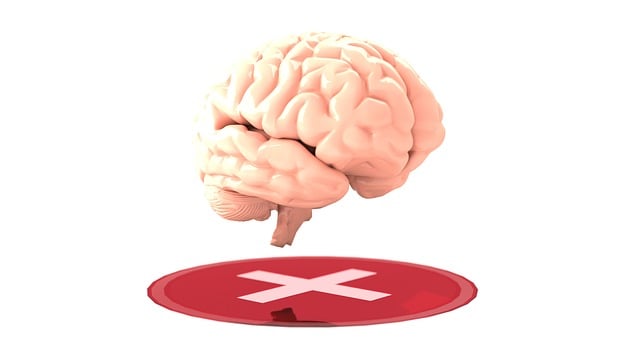Early intervention in childhood mental wellness is crucial for managing anxiety and stress. Bilingual therapy services bridge cultural gaps, addressing language barriers and promoting trust through native language sessions. This approach enhances emotional well-being, improves social skills, and encourages open family communication. Mental health professionals should use risk assessment methods to identify vulnerable children early and teach positive coping mechanisms. Parents play a vital role in building mental resilience through nurturing environments and open communication. Specialized bilingual therapy ensures accessible, culturally sensitive support for long-term mental wellness, especially for diverse families.
Mental wellness promotion among children is a vital aspect of holistic development, yet it often goes overlooked. This comprehensive guide explores key areas in fostering healthy minds, especially for bilingual kids. We delve into understanding early mental health signs and their significance, discussing cultural barriers to care through bilingual therapy. Effective strategies for emotional well-being, parental roles, and accessible resources are also highlighted, offering practical insights for nurturing resilient young minds. For families seeking bilingual therapy for children, this article provides essential information to support their journey towards optimal mental health.
- Understanding Mental Wellness in Children: Early Signs and Importance
- Bilingual Therapy: Addressing Cultural Barriers to Mental Health Support
- Effective Strategies for Promoting Emotional Well-being in Kids
- The Role of Parents and Caregivers in Nurturing Mental Resilience
- Accessible Resources and Services for Bilingual Children's Mental Health
Understanding Mental Wellness in Children: Early Signs and Importance

Understanding Mental wellness in children is crucial for early identification and intervention. Even at a young age, kids can experience signs of anxiety, depression, or other mental health challenges. Early recognition allows for timely therapy for children, which can be highly effective when addressing issues like anxiety relief and stress reduction methods. Bilingual therapy services play a vital role in ensuring these interventions reach diverse communities.
Children may express their distress through changes in behavior, such as becoming more withdrawn, having difficulty concentrating, or exhibiting dramatic mood swings. It’s essential for parents, caregivers, and educators to be aware of these red flags and know when to seek professional help. A mental wellness podcast series production focused on early intervention strategies and stress reduction methods can empower adults to better support the mental health of children in their care.
Bilingual Therapy: Addressing Cultural Barriers to Mental Health Support

Bilingual therapy is a powerful approach to address cultural barriers in mental health support, especially for children from bilingual or multicultural backgrounds. Many families face challenges when seeking therapy due to language differences, where finding therapists who speak both languages is essential. This specialized therapy not only overcomes communication obstacles but also creates a safe and culturally sensitive environment. By incorporating the child’s native language, therapists can build trust and facilitate better engagement, ensuring effective treatment.
Incorporating bilingual therapy strategies, such as translating sessions, using cultural references relevant to the child’s heritage, and including family members in the therapeutic process, enhances the overall mental wellness promotion. This inclusive practice goes beyond language translation, aiming to understand and respect the client’s unique cultural context, which is crucial for improving social skills and self-esteem. It also encourages families to actively participate in their child’s therapy, fostering open communication and a supportive network.
Effective Strategies for Promoting Emotional Well-being in Kids

Promoting emotional well-being in children is a multifaceted approach that involves creating safe spaces for them to express their feelings and fostering healthy coping mechanisms. One effective strategy is incorporating therapy sessions tailored for children, especially those offering bilingual services, as this addresses cultural needs and breaks down language barriers. Such therapy provides kids with tools to manage stress, anxiety, and other emotional challenges.
In addition to individual therapy, group sessions can also be powerful Emotional Well-being Promotion Techniques, where children learn from each other’s experiences. Mental health professionals should also integrate risk assessment methods to identify vulnerable children early on. By teaching positive thinking and resilience, these professionals empower kids to navigate life’s challenges with a more optimistic lens.
The Role of Parents and Caregivers in Nurturing Mental Resilience

Parents and caregivers play a pivotal role in fostering mental resilience in children, acting as their first line of support and guidance. By creating a safe, nurturing environment, they can help children develop healthy coping mechanisms and emotional intelligence from an early age. This involves actively listening to and validating their feelings, teaching them to identify and express emotions effectively, and encouraging open communication about mental health.
In times of distress or trauma, offering consistent care and compassion is essential. Bilingual therapy for children and families can be particularly beneficial, ensuring that support services are accessible and culturally sensitive. This approach not only addresses immediate needs but also fosters long-term mental wellness by promoting a strong foundation of emotional resilience, enabling children to navigate life’s challenges with greater ease and adaptability.
Accessible Resources and Services for Bilingual Children's Mental Health

Bilingual children often face unique challenges when it comes to accessing mental health services. The lack of culturally and linguistically appropriate resources can create barriers, hindering their ability to receive effective therapy. However, there are accessible options designed to support these children’s emotional healing processes. Many organizations now offer specialized services tailored for bilingual individuals, ensuring that kids can connect with therapists who understand their cultural context and speak their native language.
This approach is crucial in promoting coping skills development and fostering healthy mental states. By providing a safe and comfortable environment, therapy sessions can help bilingual children build resilience and navigate any emotional challenges they may face. Furthermore, these services emphasize the importance of risk management planning for mental health professionals, ensuring that practitioners are equipped to meet the diverse needs of their bilingual clientele.
Mental wellness promotion among children requires a multifaceted approach, addressing cultural barriers through bilingual therapy and leveraging accessible resources. By understanding early signs of mental health issues, implementing effective strategies for emotional well-being, and fostering resilience with the support of parents and caregivers, we can create an environment conducive to thriving minds. Additionally, recognizing the unique needs of bilingual children and providing tailored services ensures they receive the comprehensive care they deserve. Together, these efforts can revolutionize mental health support for kids, fostering healthier and more resilient futures.














